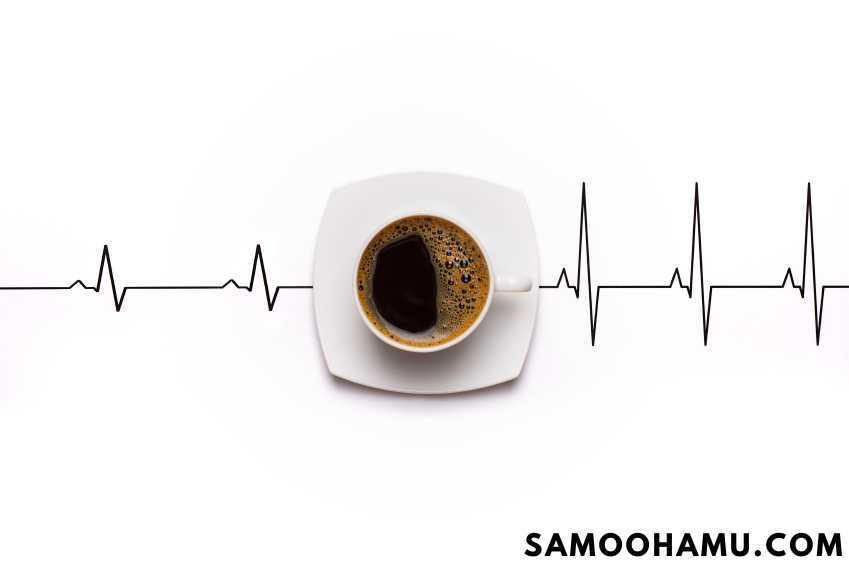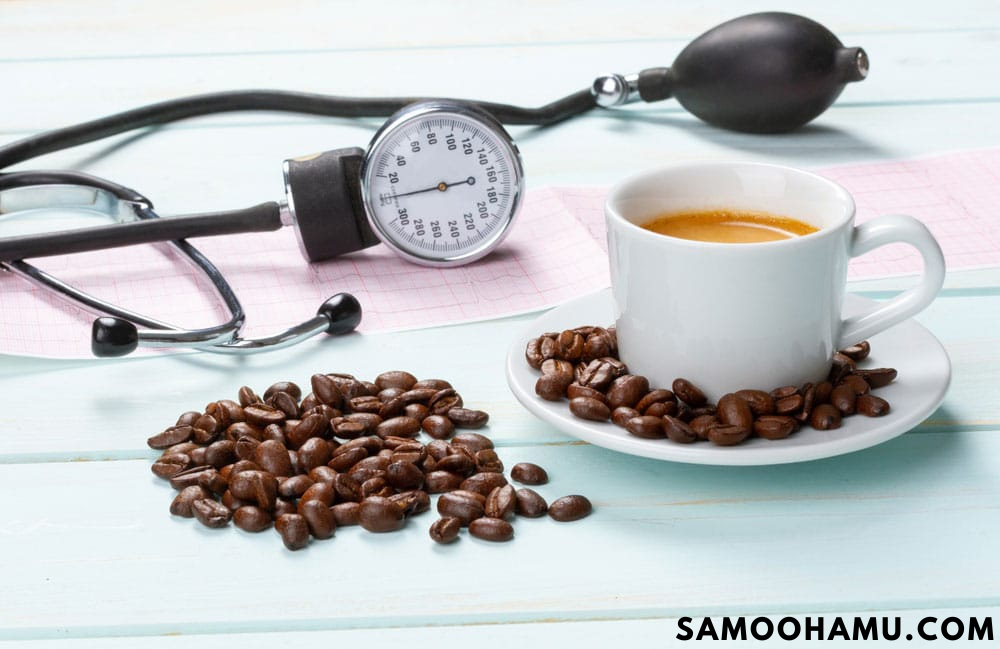Welcome, caffeine enthusiasts! If you’re someone who can’t start their day without a cup of joe or finds solace in sipping on an energy-boosting beverage, then this blog post is a must-read for you. We all know that caffeine has the power to jolt us awake and revitalize our senses, but have you ever wondered how it affects your heart? Fear not, fellow coffee lovers! Today, we are decoding the safe limits of caffeine consumption to ensure that your heart stays happy and healthy while you indulge in your favorite pick-me-up. So grab your mug and get ready for some eye-opening information about everyone’s favorite stimulant: caffeine!
How Does Caffeine Affect the Heart?

Caffeine, that magical compound found in coffee, tea, energy drinks, and even chocolate, is like a double-edged sword when it comes to its impact on the heart. On one hand, it can give you a boost of energy and improve mental alertness. But on the other hand, too much caffeine can send your heart racing and raise concerns about its long-term effects.
When you consume caffeine, it stimulates your central nervous system by blocking adenosine receptors. This leads to increased adrenaline production which causes your heart rate to elevate temporarily. For some individuals with underlying heart conditions or sensitivity to caffeine’s stimulating effects, this increase in heart rate can be worrisome.
But fear not! Research suggests that for most healthy individuals without pre-existing cardiac issues, moderate consumption of caffeine doesn’t pose significant risks to heart health. In fact, studies have shown that consuming moderate amounts of caffeine may actually provide some benefits for cardiovascular health.
So while enjoying your daily dose of java or indulging in an occasional energy drink might get your blood pumping momentarily (pun intended), as long as you stay within safe limits of consumption – there is no need to worry about any irreversible damage being done to your ticker!
The Heart-Healthy Benefits of Caffeine

When it comes to our favorite morning pick-me-up, caffeine often takes center stage. But did you know that this beloved stimulant might actually have some heart-healthy benefits? It turns out that caffeine, in moderate amounts, can offer more than just a jolt of energy.
First off, studies have shown that consuming coffee or tea regularly may reduce the risk of developing certain cardiovascular conditions. This could be attributed to the antioxidants found in these beverages, which help protect against inflammation and oxidative stress – both factors linked to heart disease.
Additionally, caffeine has been found to improve blood flow by dilating blood vessels and increasing nitric oxide production. This can result in lower blood pressure levels and a reduced risk of hypertension. However, it’s worth noting that individual responses to caffeine vary greatly, so moderation is key.
Furthermore, research suggests that regular consumption of moderate amounts of caffeine may decrease the likelihood of developing high cholesterol levels. Compounds present in caffeinated beverages have been shown to inhibit cholesterol absorption in the intestines while promoting its excretion from the body.
Of course, as with anything we consume, moderation is crucial when it comes to reaping these potential benefits. While enjoying your daily cup(s) of coffee or tea can offer some advantages for your heart health, excessive intake can lead to unwanted side effects – but we’ll get into those later!
So next time you indulge in your favorite caffeinated beverage (within safe limits), remember that you might actually be doing your heart a favor! Just one more reason why this delightful stimulant continues to hold a special place in our lives each day!
Understanding the Safe Limits of Caffeine Intake
When it comes to caffeine, we all have our favorite pick-me-up. Whether it’s a steaming cup of coffee or an energizing soda, caffeine is a common companion in our daily lives. But how much is too much for your heart? Let’s dive into the safe limits of caffeine consumption and decode what you need to know.
1. Blood Pressure and Caffeine

Did you know that your daily cup of coffee could potentially affect your blood pressure? It’s true! Caffeine has been shown to have an impact on our body’s cardiovascular system, including our blood pressure levels. When we consume caffeine, it stimulates the nervous system and causes a temporary increase in blood pressure.
But before you start panicking about that morning latte, let me reassure you – for most people, this increase in blood pressure is minimal and temporary. In fact, studies suggest that regular caffeine consumption may not have a significant long-term effect on blood pressure.
However, if you already have high blood pressure or are susceptible to hypertension, it’s important to be mindful of your caffeine intake. For individuals with hypertension or those looking to lower their blood pressure naturally, it might be best to limit or even avoid caffeine altogether.
Remember, everyone reacts differently to caffeine. So if you notice that your heart rate increases significantly after consuming caffeinated beverages or foods, it’s worth discussing with your healthcare provider.
In conclusion: While moderate amounts of caffeine may not pose a significant risk for most people when it comes to blood pressure regulation; those with pre-existing hypertension should exercise caution and consider limiting their consumption. As always consulting with a healthcare professional is recommended for personalized advice regarding dietary choices and managing any health conditions
2. Cholesterol and Caffeine

Did you know that your daily cup of joe might have an impact on your cholesterol levels? While caffeine itself doesn’t contain cholesterol, it can indirectly affect your body’s cholesterol production. Let’s dive into the relationship between caffeine and cholesterol.
When we consume caffeine, it stimulates our central nervous system and increases the release of certain hormones. One of these hormones is cortisol, which plays a role in regulating blood sugar levels. Elevated cortisol levels can lead to higher LDL (bad) cholesterol and lower HDL (good) cholesterol.
Additionally, some studies suggest that caffeine may interfere with the absorption of certain nutrients like vitamin D, which is essential for maintaining healthy cholesterol levels. This could potentially contribute to imbalances in lipid profiles.
But before you swear off coffee forever, it’s important to note that the effects seem to be modest and vary from person to person. Factors such as genetics and overall diet play a significant role in how much impact caffeine has on individual cholesterol levels.
To keep your heart happy while still enjoying your favorite caffeinated beverages, moderation is key. Opt for healthier brewing methods like filtered coffee instead of espresso-based drinks laden with cream and sugar. And don’t forget about other lifestyle factors like exercise and a balanced diet – they all play a part in maintaining optimal heart health!
Remember: knowledge is power! Stay informed about how different substances interact with your body so you can make educated choices when it comes to fueling up each day!
3. Palpitations and Caffeine

Have you ever felt that sudden fluttering or pounding in your chest? That’s what we call palpitations. And guess what? Caffeine might be playing a role in those heart-fluttering moments.
When consumed in excessive amounts, caffeine can stimulate the nervous system and cause an increase in heart rate. This can lead to palpitations, making you feel like your heart is skipping a beat or racing out of control.
But don’t panic just yet! Occasional palpitations after consuming caffeine are usually harmless for most people. However, if you experience frequent or severe palpitations, it’s essential to consult with a healthcare professional.
It’s worth noting that some individuals may be more sensitive to the effects of caffeine on their hearts than others. If you’re someone who tends to have a higher sensitivity, it might be wise to keep an eye on your caffeine intake.
To reduce the risk of experiencing palpitations from caffeine consumption, consider cutting back on caffeinated beverages such as coffee, energy drinks, and certain teas. Opt for decaffeinated options instead or limit yourself to one cup per day.
Remember that moderation is key when it comes to enjoying your favorite caffeinated treats without putting unnecessary strain on your heart!
Stay tuned for our next section where we discuss potential side effects of excessive caffeine consumption and how they can impact your cardiovascular health!
4. Potential Side Effects of Excessive Caffeine Consumption

We all know that indulging in our favorite cup of joe can give us the energy boost we need to tackle the day. But what happens when we go overboard with caffeine? Unfortunately, excessive consumption can have some unpleasant side effects on our hearts.
One potential side effect is increased heart rate and palpitations. When you consume too much caffeine, it stimulates your central nervous system, causing your heart to beat faster and irregularly. This can be particularly concerning for individuals with existing heart conditions or those who are more sensitive to caffeine’s effects.
Another issue is elevated blood pressure. Caffeine has a temporary impact on raising blood pressure levels, which may not be problematic for most people. However, those who already have high blood pressure should limit their intake as it can exacerbate this condition.
Additionally, excessive caffeine consumption can lead to insomnia or disrupted sleep patterns. Lack of quality sleep puts stress on the body and increases the risk of developing cardiovascular problems over time.
While occasional overindulgence in caffeinated beverages isn’t likely to cause long-term harm for most individuals, it’s important to keep an eye out for any adverse reactions your body may have after consuming large amounts of caffeine-rich drinks like coffee or energy drinks.
In order to protect your heart health and avoid these potential side effects, moderation is key when it comes to caffeine consumption. It’s generally recommended that adults limit their daily intake to about 400 milligrams (mg) of caffeine per day – equivalent to roughly four cups of brewed coffee or ten cans of soda.
Remember, everyone’s sensitivity varies so pay attention if you experience any unusual symptoms such as rapid heartbeat or jitters after having more than your usual dose of caffeinated beverages. If these symptoms persist or worsen even after cutting back on your intake, don’t hesitate to consult a healthcare professional for further guidance tailored specifically to your situation.
Now that we’ve covered the potential side effects of excessive caffeine consumption on heart health,
Tips for Lowering Your Caffeine Intake
If you’re looking to reduce your caffeine consumption and protect your heart, here are some tips that can help:
1. Gradual Reduction: Instead of going cold turkey, try gradually cutting back on your caffeine intake. Start by replacing one cup of coffee with a decaf version or herbal tea each day.
2. Explore Alternatives: There are plenty of delicious alternatives to caffeinated beverages. Swap out your morning cup of joe for a refreshing glass of water infused with fruits or herbs, or indulge in a soothing chamomile tea in the evening.
3. Read Labels: Be mindful not just of coffee but also other sources of caffeine like energy drinks, soda, chocolate bars, and even some medications. Check labels carefully to identify hidden sources and make informed choices.
4. Opt for Herbal Options: Herbal teas like peppermint or ginger can provide a flavorful alternative without the stimulating effects of caffeine.
5. Stay Hydrated: Drinking plenty of water throughout the day can help reduce cravings for caffeinated beverages while keeping you hydrated and supporting overall heart health.
6.Exercise Regularly: Engaging in regular physical activity helps boost energy naturally and reduces reliance on caffeine as an artificial stimulant.
Remember, reducing your caffeine intake doesn’t have to be daunting! By incorporating these simple steps into your routine gradually over time, you’ll be well on your way towards healthier habits and a happier heart!
When to Seek Medical Advice for Caffeine-related Heart Issues

It’s important to listen to your body and pay attention to any warning signs that could indicate caffeine-related heart issues. While moderate consumption of caffeine is generally considered safe, excessive intake can lead to problems for some individuals.
If you experience persistent high blood pressure or notice a significant increase in your heart rate after consuming caffeinated beverages, it may be time to seek medical advice. These symptoms could be indicative of an underlying cardiovascular condition that needs attention.
Similarly, if you frequently have palpitations or irregular heartbeats after consuming caffeine, it’s wise to consult with a healthcare professional. They can help determine whether these symptoms are related to excessive caffeine consumption or if there might be another underlying cause.
Individuals with high cholesterol levels should also exercise caution when it comes to their caffeine intake. Some research suggests that caffeine may temporarily raise LDL (bad) cholesterol levels in certain individuals. If you already have elevated cholesterol levels or are at risk for cardiovascular disease, discussing your coffee habit with a doctor is recommended.
Remember, everyone metabolizes caffeine differently, so what works for one person may not work for another. It’s always better to err on the side of caution and reach out for medical advice if you’re concerned about how much caffeine is too much for your heart.
Stay tuned as we explore practical tips on lowering your overall consumption and maintaining a healthy balance between enjoying your favorite caffeinated beverages and protecting the health of your heart!




